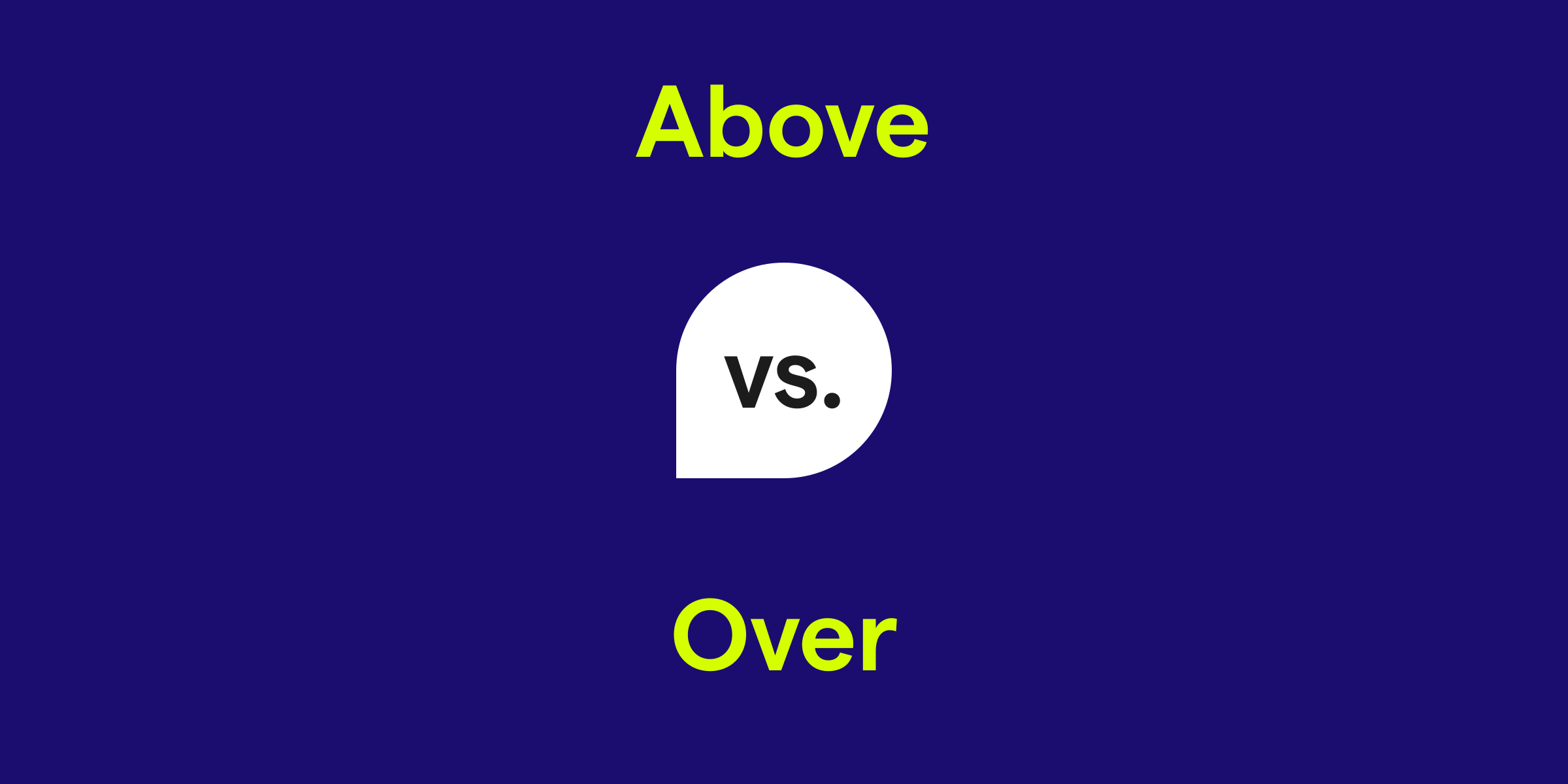Above vs. Over: What's the Difference?
Understanding the difference between above and over can be nuanced, as both prepositions often denote a higher position in relation to something else. Above is used to indicate a higher level without implying contact, or signifies superiority or excess in quantity. Over, on the other hand, can imply contact, movement, or being directly superior to something, and it's also often used with numerals to denote more than a certain amount.

How do you use the word above in a sentence?
The word above is used when you want to focus on something being at a higher level but not necessarily touching another object. It often implies a clear separation or a reference to a higher place in a hierarchy. Above is a good choice when also talking about matters of rank or preference.
Examples of above in a sentence
- She hung the painting above the mantle, where everyone could see it.
- The airplane was flying above the clouds, far from the reach of the skyscrapers.
- As a manager, you must look above personal interests and focus on what's best for the team.
How do you use the word over in a sentence?
The word over is versatile, applicable when discussing something that covers or spans a surface, sometimes touching or enveloping it. It also describes movement across a boundary or barrier. Additionally, over is preferred in contexts involving greater amounts, such as age or measurements, often in conjunction with numerals.
Examples of over in a sentence
- They threw a beautiful tablecloth over the old wooden table to prepare for dinner.
- The children joyously ran over the hill, excited at the sight of the park.
- He celebrated his victory over the incumbent, securing 60% of the vote.
Above and over definition, parts of speech, and pronunciation
Above definition:
Above is a preposition or an adverb that describes something as being at a higher level or degree than something else, without necessarily being in direct contact or covering it. It can also describe something surpassing a specified amount.
Above parts of speech:
Above pronunciation:
Above is pronounced as "/əˈbʌv/", with a soft 'a' as in 'about' and a sharp 'v' as in 'love'.
Over definition:
Over is a preposition, adverb, or adjective that signifies being in a higher position relative to something else with a possibility of covering, spanning, or crossing it. It is also used to specify an amount greater than a certain number.
Over parts of speech:
Over pronunciation:
Over is pronounced as "/ˈoʊvər/", with a long 'o' as in 'go' and an ending that is softer, almost like 'uh'.
Above is a preposition or an adverb that describes something as being at a higher level or degree than something else, without necessarily being in direct contact or covering it. It can also describe something surpassing a specified amount.
Above parts of speech:
- As a preposition: The helicopter hovered above the building, observing from a safe distance.
- As an adverb: The scores were all above and showed an improvement from last year.
Above pronunciation:
Above is pronounced as "/əˈbʌv/", with a soft 'a' as in 'about' and a sharp 'v' as in 'love'.
Over definition:
Over is a preposition, adverb, or adjective that signifies being in a higher position relative to something else with a possibility of covering, spanning, or crossing it. It is also used to specify an amount greater than a certain number.
Over parts of speech:
- As a preposition: He wore a coat over his shirt to keep warm in the cold weather.
- As an adverb: Come over and join us for dinner tonight.
Over pronunciation:
Over is pronounced as "/ˈoʊvər/", with a long 'o' as in 'go' and an ending that is softer, almost like 'uh'.
Above vs. Over in a nutshell
In essence, above and over can be interchangeable in certain contexts, but they are not always synonyms. Above implies a relative position without contact and often suggests a non-physical or metaphorical elevation, whereas over indicates a higher position which often implies coverage or direct superiority. Remember to use over with numbers and above when the concept of height or superiority is more metaphorical or involves no direct contact.
Get AI Writing Assistance Wherever You Type
Make sure your vocabulary is on point and every punctuation mark is in the right place, no matter where you’re working. Grammarly works across more than 1 million websites and apps so you can improve your writing without copying, pasting, or breaking focus.

More Commonly Confused Words
Interest piqued? Pore (not pour) over other commonly confused words to help your writing reach peak (not peek) performance.